As my birding buddies will readily verify, I’m a fair-weather birdwatcher. Venturing out when it’s pouring with rain and there’s a gale power wind blowing isn’t actually my scene. This explains why I’ve spent rather more of my time in search of birds in sizzling, dry counties moderately than cool, moist ones. Nevertheless, typically the forecast is awful however the birds are good, so I simply have to beat the problem of the climate and get on with it. There was simply such a day on the finish of final month. The forecast was for heavy rain all day, however there was the tantalising prospect of seeing a Dotterel – one had been reported on the Ringstead Downs on the North Norfolk coast.
Golden plover on a boring August morning
Ringstead is about an hour’s drive from dwelling: the roads had been moist all the way in which, however the windscreen wipers had little work to do, and there was little greater than a touch of rain within the air after we arrived on the web site the place the Dotterel had final been reported. Dotterels are scare however annual migrants in North Norfolk. They’re sufficiently elusive and exhausting to see that they’re widespread with birders, so we anticipated to seek out different folks in search of the chicken, however there was nobody to be seen after we parked the automobile.
Although it might not have been raining, it was a gray and depressing morning with poor visibility. We had been on a ridge with a commanding view, surrounded by arable fields. A few mile to the north we may see the North Sea, wanting darkish and forbidding. A fast scan with binoculars revealed various low-flying Swallows, and there was a single Swift amongst them. By final August most of our Swifts have lengthy since left for Africa. This was a passage chicken transferring south.
It wasn’t fairly as birdless as first impressions had instructed, as within the stubbles not removed from us we discovered an enormous flock of Golden Plovers. Many had been nonetheless in summer time plumage, their black faces revealing them to be northern birds, nearly definitely from Scandinavia. The Golden Plovers that nest in northern Britain by no means achieve black faces. As we watched, extra birds flew in to hitch them, their comfortable, plaintive whistles an evocative sound of autumn.
We scanned although the flock within the hope of discovering the Dotterel, however with none luck, although the stories we had heard instructed that the latter was fairly proud of its personal firm, and wasn’t consorting with the goldies. We walked on, as the newest stories of the Dotterel instructed that it favoured a big weedy subject that had been harvested some weeks earlier than.
I scanned with none actual hope of success, however nearly immediately discovered a distant chicken that was the precise dimension and form. Was it a solitary Golden Plover? Dotterels are a bit smaller than Golden Plovers, however their form and proportions are comparable. I stared exhausting by way of my Swarovskis – my chicken clearly had darkish underparts and a discernible whitish supercilium. Success! It was certainly a Dotterel, and the chicken we had been in search of.
Although it by no means got here nearer than a few hundred yards, we had been in a position to watch it for the following half hour. It was clearly an grownup, moulting into winter plumage, however whether or not it was a male or feminine was troublesome to say. Dotterels are uncommon in that the feminine is extra brightly colored than the male. In spring each sexes have rufous underparts, however these of the male are moderately duller than the feminine’s.
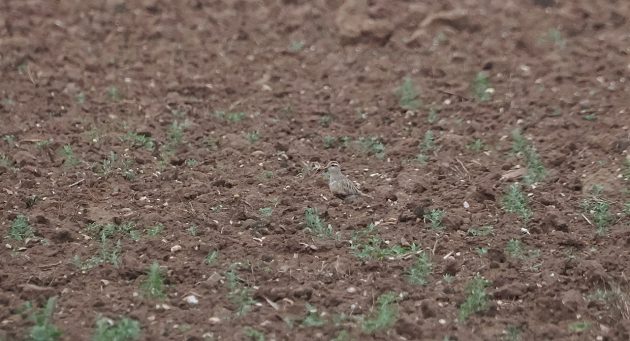
Look rigorously and also you may discover the Dotterel
I wasn’t too bothered about its intercourse: it was a deal with to see a Dotterel. My final sighting had additionally been in North Norfolk, however ten years earlier than, after I’d discovered a visit of a dozen birds on spring migration. That sighting had been only a mile or so to the east of the place we had discovered this chicken, for the Ringstead Downs are well-known as arguably the most effective web site in Norfolk to seek out these elusive plovers. They happen in each spring and autumn – I’m wondering what number of pause right here annually, however are unseen and so unrecorded?
Dotterels are famously tame and approachable, however I didn’t wish to disturb this chicken, so I tried to photographed it at nice vary from the trail (the Inexperienced Financial institution) we watched it from. My shot is, at greatest, not more than a file, because the vary was nice. By the point we left, a number of different folks had arrived to admire the chicken, so we duly pointed it out to them. The rain had now began to fall, which it continued to do for the remainder of the day.
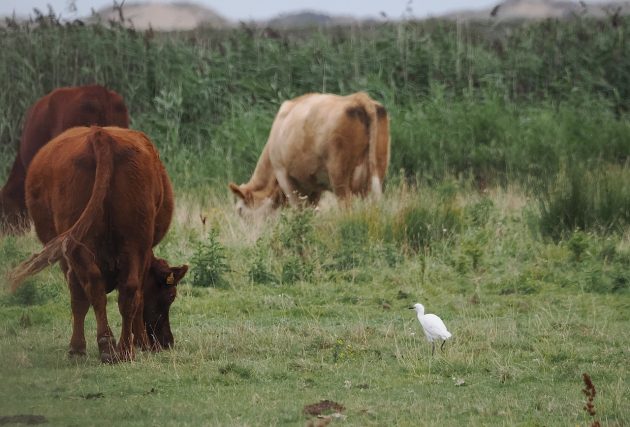
Juvenile Cattle Egret. These birds solely began breeding in Norfolk in 2020
The Dotterel proved to be, not surprisingly, the spotlight of a moist day. There have been, nonetheless, different good birds. A juvenile Purple-Backed Shrike was a lot too distant to level my digicam at, however I did moderately higher with quite a lot of wildfowl and waders on the RSPB’s Titchwell reserve, whereas a Cattle Egret was a notable discover on the grazing marshes at Burnham Deepdale. These small egrets have solely lately began to breed in Norfolk. This chicken was a juvenile with a black beak – the beak quickly begins to show yellow because the chicken ages. It had presumably fledged from the close by Holkham heronry earlier in the summertime.
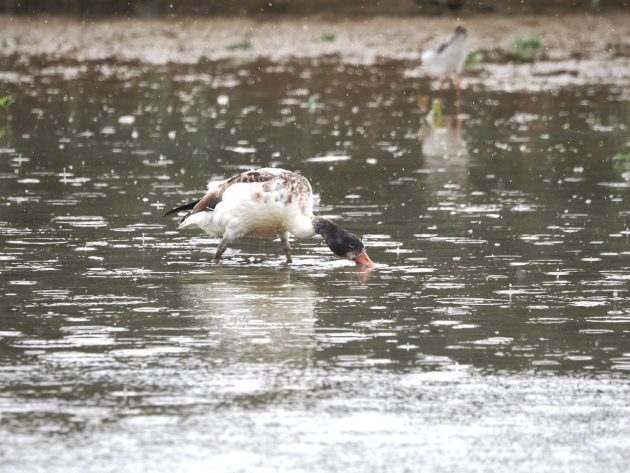
Geese within the rain: a juvenile Shelduck (above) and an eclipse Teal (under)
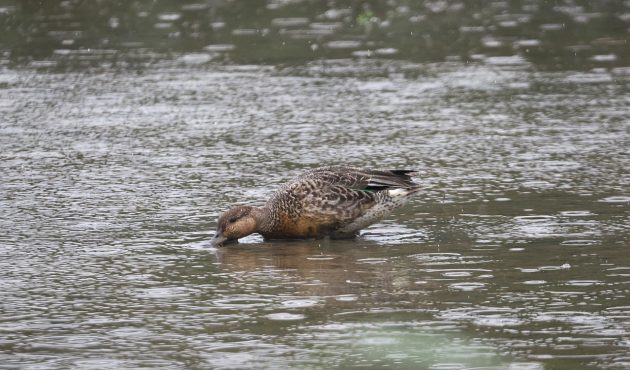
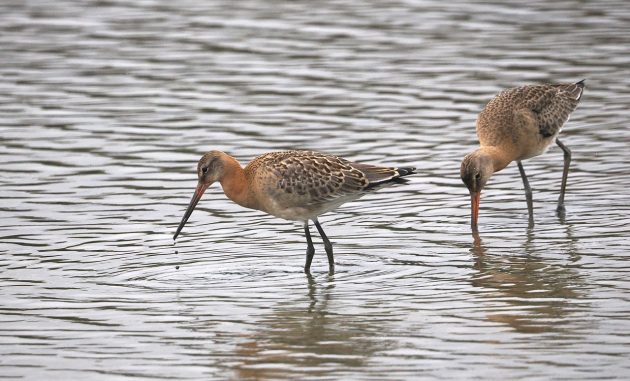
Grownup Black-tailed Godwits of the race islandica. These birds are dropping their summer time plumage, whereas the person under is in winter plumage
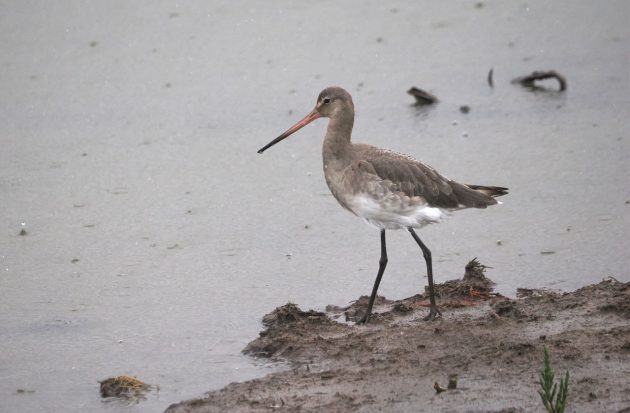
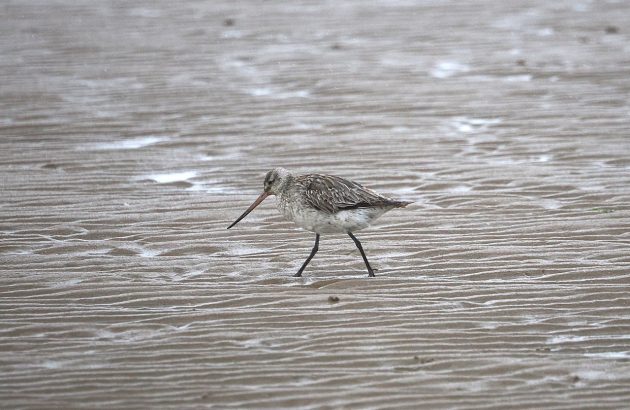
A Bar-tailed Godwit on the seaside. Word the a lot shorter legs in comparison with the Black-tailed Godwits
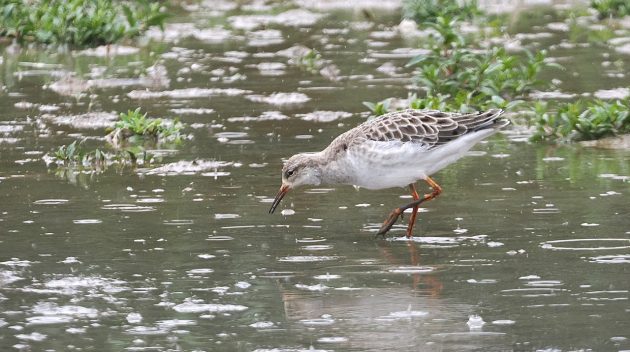
Grownup Ruff in winter plumage, and (under) a fresh-plumaged juvenile
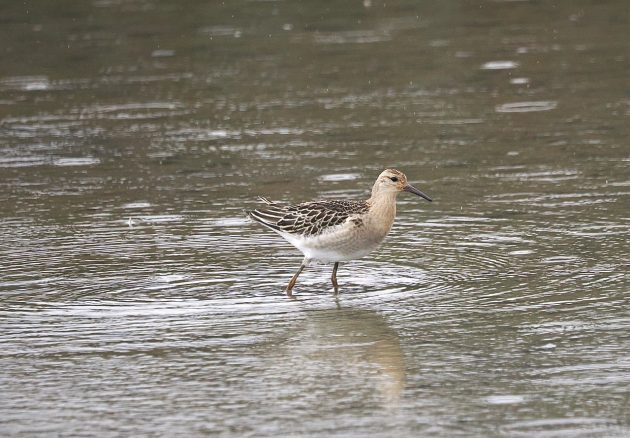
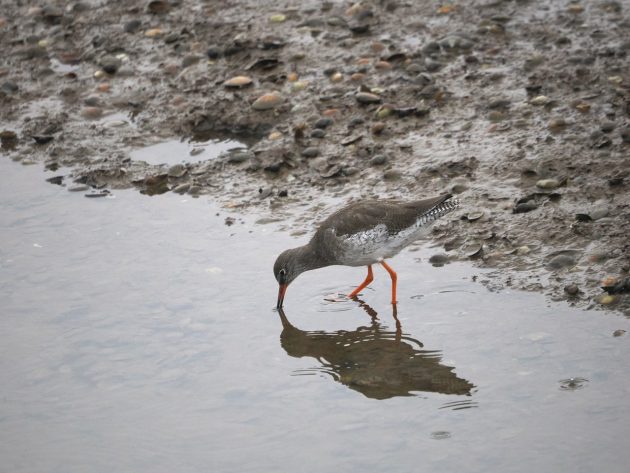
Widespread Redshank – a resident wader in North Norfolk
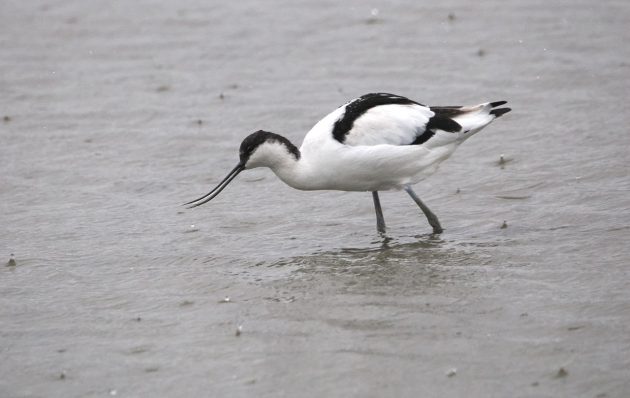
Avocet, as soon as a rarity in Norfolk, now a typical breeding chicken
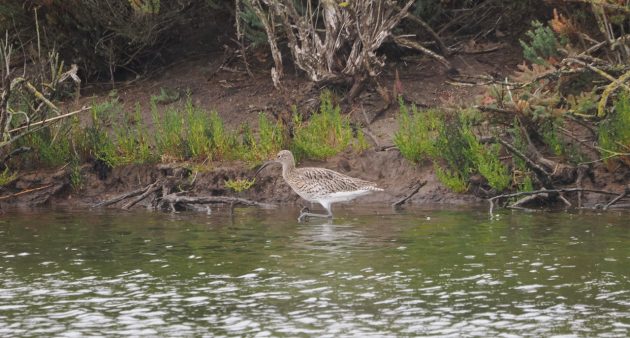
Curlew
The climate didn’t show to be as moist because the forecasters had predicted, nevertheless it was nonetheless a depressing day. East Anglia is without doubt one of the driest components of the UK and this yr has been notably dry, so I can hardly complain. Birds do, nonetheless, look a lot better when the solar shines.
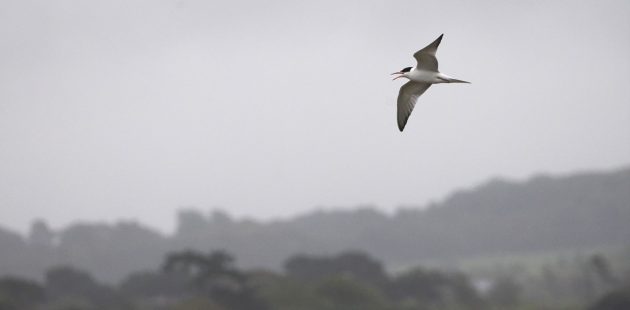
A vocal Widespread Tern – complaining concerning the climate?

